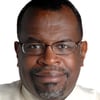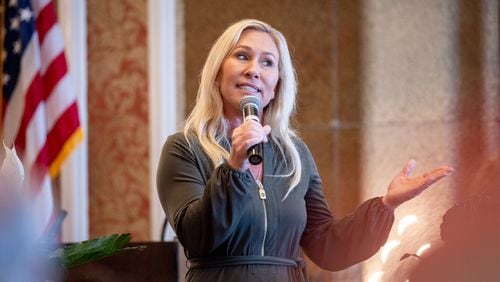We are living – and needlessly dying – in perilous times.
That should not be a surprise. All of us have helped bring into being the current, reprehensible state of American un-civil society.
We cannot legitimately deny our culpability, or dispute that fear, misunderstanding, an ignorance either willful or unintended, combined with hard-headedness and hard-heartedness, have led us to the precipice where America now stands.
Our acrimonious ways have fueled divisiveness and distrust, hatred and enmity. We often know only: “I am right; you are wrong.” That can feed destructive personal choices; and even murderous ones at times.
We have forgotten how to work through legitimate differences of opinion that have always been in the midst of the American republic. We’ve instead chosen unhealthy, corrosive, incessant backbiting. And then we marvel that it builds nothing, while dissolving most everything that was once common and constructive in our communities.
As a result, people died violently in the course of one spectacularly bloody week. Five police officers assassinated in a murderous rampage in Dallas; another seven wounded. In Minnesota, a law-abiding school cafeteria supervisor was shot dead by police inside a vehicle while a woman and small child also in the car watched. The offense: a broken taillight.
It’s hard to imagine a greater divide, or envision how the remaining, depressingly high walls that delineate the alternate realities of race in America could possibly grow any taller. It will take nearly a miracle to begin constructively confronting a status quo that too often proves fatal to too many.
There is no viable excuse for last week’s horrors, or for other events that have led us to this point. Through our conduct, too many of us have been complicit in digging a sorry low point in the ongoing experiment that is American representative democracy.
We have let the dividers among us overwhelm cooperation, empathy and collaboration. We leap to point fingers, rather than incline our ears to respectfully hear what another person of goodwill may be saying.
We deny that stubborn vestiges of racism or bias linger still in this country. And that such can cost people their lives. Meanwhile, others blame prejudice for seemingly everything save for the sun’s rise. And sometimes use such a belief as justification to assault both human flesh and societal decency.
We cheer when a neighborhood “watchman” spoiling for a confrontation shoots and kills a teenager, and successfully argues self-defense. After all, the victim was just a “thug.” We knowingly smirk when a U.S. Senator from Georgia “jokes” about the life of the President of the United States, wickedly twisting a Biblical warning to infer that his wife should become a widow and his children orphans.
On the morning after an inexcusable, murderous night of terror in Dallas, a former Illinois congressman tweeted a threat to the President and predicted street vengeance.
We condemn one evil, but the beam in our eyes blinds us to others. Then we wonder why people with whom we disagree are incensed. And innocents are then slaughtered, at least partially as a result.
We live our lives in heavily insulated universes, self-selecting only people and sources of information that comport with our limited, imperfect field of view. We reject outright that someone else’s reality or experiences may be different – or have merit. Our chosen isolation cells are akin to a cancerous, modern-day doctrine of separate but equal.
We prefer to burn bridges, rather than build them. All the while professing to hold the moral, or religious, high ground.
We have forgotten, or worse yet, ignored the Rev. Martin Luther King Jr.’s advice that “we must learn to live together as brothers or perish as fools.” We have shown sneering disdain for the prophet Isaiah’s injunction to, “Come now, and let us reason together, saith the Lord.”
The most venal in our midst have championed eye-for-an-eye vengeance and ignored the other half of that oft-quoted phrase which warns that such will leave the entire world blind.
We should know a better way, especially in the South. Divisiveness is always a suboptimal, ineffective state of being, despite any fervent, misguided belief to the contrary. Atlanta long ago showed the world a wiser path forward, teaching lessons in how to persevere past conflict in order to pursue justice and harmony among parties that initially disagree. Doing so takes linking arms around our commonalities, and not widening existing divides.
As this nation prepares to bury those killed last week, we should at least summon the decency to quiet ourselves for a bit and shut out for a moment the seductive voices of venom and division. We might then meditate on those lost and offer prayers for the victims’ families – and for our nation.
Then we should look inwardly at what we can each do better, and how we can come together around a common goodwill to vanquish the divisive, destructive spirit afoot in our nation.
If that proves an impossible task, then we have truly lost our way – and put our own souls and America’s – in jeopardy.
Getting there will take courage, humility, patience, empathy and contrition. But we have no other choice if we don’t want more people to senselessly die.






